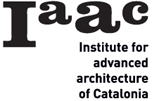I would like to start with a comment on Mr. Daniel Kahneman`s presentation of our thinking processes. His notion that we can think both fast and slow is agreeable to me, however even thou it is not part of the questions I would like to dwell further on this topic. My believe is that in reality there is ,in 99% of the cases, no such thing as fast thinking. Sure, we do something that appears as thinking, but is it really?
The toughs that emerge into our brains in response to the situation we find ourselves in do look like our own genuine product. In fact I don`t think that they are anything else, but pre-learned models of behavior, programmed in our heads from our surroundings while we where growing. We have observed how other people/characters behave in similar situations so long, that as soon as we find ourselves in the same scenario we assume that the solutions that our brain provide us with, our thoughts, are actually our own thoughts. We assume that the feelings that we feel in those situation are our own feelings. I found for myself, that in all of those cases, every time, if I stop to analyse and question the scenario at that moment, those thoughts and those feelings were not really mine. Sure they could work, but most of the time they are not the best way I could think or feel. And I mean the best way for my own self. My own interests and goals.Because there are never two situations exactly alike ( there are always some different details ) acting according to a pre-learned (or programmed) model of behavior never actually is the best way to act. If you start thinking where does your feelings emerge from, you will find out that you have been programmed to feel like that in this scenario. And most of the time, when you think (for yourself and specifically about this situation right now) you will find out that you don`t want to feel the way you feel, that there is actually no reason to feel this way at all. And suddenly you don`t feel this way no longer. Because feelings emerge from thoughts. And thoughts, most of the time are not our thoughts, they are somebody else thoughts that we adopted for our own without questioning them. At all. So that is why I can not agree with Mr. Kahneman. For me there is slow thinking and no thinking. Period.
As an answer to the first question i would say that in all likelihood it is not possible for a person involved in design to give an answer to all of the problems that emerge from a city. And it sure is not very realistic to assume that we can separate one building from the whole infrastructure of one city. There are many reasons why it can not happen. The first to appear in mind are the financial ones, right after followed by the technological ones. If I insist on thinking about it at some point I will end up with the purely sociological ones. Because quite frankly, our cites appear as they appear not because of any financial issues. Well maybe they do, but those issues are there because of what we are as beings. The way we think, the way we act and interact. Our moral level of understanding with the world around us is the key factor for the shaping of our cities. And logically, one building can not change all that. But still one design can after all do something. It could probably show the way. Not only of a new technology, or aesthetics, but a new way of thinking, a new way of structuring priorities. Simply said – as a different point of view.
According to question number two: As far as my understanding on the problem allows me to comprehend the situation, financially profitable and economically feasible are not viewed as equivalents, because most of the time we speak about short term financial profit. Cut the forest now to produce huge amount of profit this year, way bigger than if we cut just parts while we plant new trees in the same time. In 60 years there wont be any trees and from huge profit we will go to no profit. If we plant while cutting in 60 years we will have the same amount of profit (by profit I mean production witch is not always the same thing) and we will maintain that profit for as long as we like. The problem is that the highest possible moral goal right now in our society is the amount of profit. The amount of profit now. This month. This year. And the bonus that we will get with it. In 60 years… who knows I want my bonus now. I need my bonus now. And so on. So from this point of view there is no way to have both concepts on the same table. Or at least it used to be the case. With more and more people slowly realizing the fault in our moral values today, those values are starting to shift. And hopefully will continue shifting. With this change the possibilities for financial profit witch in the same time is economical feasible do seem very possible. Why? Because there is finally market for it. There are people who are willing to choose a product that is more expensive but without negative impact on society than to get the same exact product cheaper but knowing that there is a negative impact.
